It slips so easily off the tongue. In fact, it’s a modern mantra. ‘Religion causes all the wars.’ Karen Armstrong claims to have heard it tossed off by American psychiatrists, London taxi-drivers and pretty much everyone else. Yet it’s an odd thing to say. For a start, which wars are we talking about? Among the many causes advanced for the Great War, ranging from the train timetables on the continent to the Kaiser’s withered left arm, I have never heard religion mentioned. Same with the second world war. The worst genocides of the last century — Hitler’s murder of the Jews and Atatürk’s massacre of the Armenians (not to mention his expulsion and massacre of the Greeks in Asia Minor too) — were perpetrated by secular nationalists who hated the religion they were born into. The long British wars of the 18th and 19th centuries — the Napoleonic wars and the Seven Years’ War — were cheerfully fought by what Wellington called ‘the scum of the earth’ for land and empire, not for the faiths to which they only nominally belonged.
We have to go back to the 17th century and the Wars of Religion to find a plausible candidate. Hobbes certainly believed that the preachers had been ‘the cause of all our late mischiefs’. But modern historians are more inclined to describe the English civil war as the War of Three Kingdoms and/or as a struggle against the autocracy of Charles I. The Wars of Religion on the continent do look like a fall-out from the cataclysmic split of the Reformation, though Armstrong points out that there too dynastic rivalry came to predominate. Pope Paul IV went to war against the devout Catholic Philip II of Spain. The Catholic Kings of France allied with the Ottoman Turks against the Catholic Habsburgs and fought for 30 years on the same side as half the Protestant princes of Germany.
Skipping lightly over the non-religious Wars of the Roses and Hundred Years’ War, we have to reach back seven centuries to the last Crusades to find bloody and unremitting wars that were quintessentially religion-driven, not to mention genocidal (before setting out, the Crusaders usually massacred the local Jews as an hors d’oeuvre).
There at last we find a conflict in which the throb of religious passion never faded, even if compounded by greed and sheer bellicosity. Of all the gaffes uttered by that master of misspeak, George W. Bush, his description of the War on Terror as a crusade takes the bloody biscuit.
On the whole, though, for a millennium in which religion has loomed so large, as a motive for actual war it seems to have been rather secondary. What then explains this obstinate modern conviction that religion is the driving cause of organised bloodshed? Karen Armstrong, a former nun, has built up a formidable reputation as a scholar of world religions who is eloquent and empathetic, which is rare, and impartial, which is rarer. In trying to disentangle the fateful intertwinings of religion and violence, she ranges across the great empires and leading faiths of the world. Fields of Blood is never less than absorbing and most of the time as convincing as it is lucid and robust.
Armstrong starts off, though, on rather shaky ground. She tells us that ‘there is little evidence that early humans regularly fought one another’. It was when they stopped hunting and foraging and started farming that the competition for land, women and cattle began: ‘With agriculture came civilisation, and with civilisation warfare.’
This is essentially the noble-savage story familiar to us from Rousseau and Margaret Mead, not to mention Marx and Engels. Yet it is now fiercely contested. Steven Pinker, following the anthropologist Lawrence Keeley, claims in The Better Angels of Our Nature that the chances of a violent death were far worse for prehistoric hunter-gatherers than for us — 30 times worse, according to Keeley. Other anthropologists still claim that our remotest ancestors spent their time laughing, making love and playing non-threatening games. Hard to say who’s right. It seems to be a question of counting axe-gashes on an unreliable sample of skeletons. I must say, though, that Pinker’s overall thesis, that the world is steadily getting more peaceful, does seem a trifle unpersuasive just now.
Armstrong is at her best in drawing out the historical elements which crystallise into great religions. Typically, she says, they emerge in conditions of social stress and oppressive state violence. The founder preaches that the callous and ceaseless slaughter can be checked only if we learn to see the Other as our fellow human being. Invariably, his golden rule is: all men are equal in the sight of God, do as you would be done by, love your enemies, turn the other cheek.
This message is common to Confucius, Zoroaster, Jesus, Guru Nanak the founder of the Sikhs, Gandhi and Nurse Cavell. Muhammad too is reported to have told his followers that ‘not one of you can be a believer unless he desires for his neighbours what he desires for himself’. There are many verses in the Koran which instruct Muslims not to retaliate but to forgive and forbear, and to respond to aggression with mercy, patience and courtesy.
But of course there are other verses which don’t, famously the Sword Verse, which eggs on the faithful to slaughter idolaters. The sad truth is that religions are corrupted by success. The more popular they become, the closer they are drawn into the ambit of state power, the more their practice and doctrine have to be remodelled to suit their new overlords. Armstrong reflects gloomily:
Every major faith tradition has tracked the political entity in which it arose; none has become a ‘world religion’ without the patronage of a militarily powerful empire and every tradition would have to develop an imperial ideology.
You can keep the old faith, as do the Sufis and the Quakers, but that means staying out of the loop. The conversion of Constantine also meant the conscription of Christianity. It was not long before Augustine of Hippo was developing the convenient theory of the ‘just war’. Similarly the ahadith, the later reports of the Prophet’s sayings, confer a spiritual dimension on warfare which it doesn’t have in the Koran. Militant Sikhs today prefer to quote the martial teachings of the Tenth Guru rather than those of their founder Guru Nanak, who taught that only ‘he who regards all men as equals is religious’.
Christopher Hitchens had it the wrong way round in his subtitle to God is Not Great. It should have been, not ‘How Religion Poisons Everything’ but ‘How Everything Poisons Religion’. This is the misunderstanding which drives fanatical secularists to demand that faith be driven out of the public square and permanently banned from re-entry, like a drunk from the pub he always picks a fight in.
The demand was first heard in the 17th century from Hobbes and Locke, and it became an article of faith for the American revolutionaries. Jefferson believed that Church and State had proved ‘a loathsome combination’, and he was determined to build a ‘wall of separation’ between them. What he could not foresee was that nationalism would effortlessly take over the mantle of self-righteousness, and the apocalyptic language too. Within 60 years, the first explicitly non-sectarian republic exploded in the most modern and deadly civil war, its cause immortalised by the rhetoric of the non-religious Abraham Lincoln.
Ever since, the ferocity of liberal nationalists has matched anything the bigots in armour can do. Hitch himself, though infinitely amiable in personal relations, was no slouch as a secular Saladin. His reveilles after 9/11 were scorchers:
I think the enemies of civilisation should be beaten and killed and defeated, and I don’t make any apology for it… We can’t live on the same planet as them, and I’m glad because I don’t want to. I don’t want to breathe the same air as these psychopaths and murderers… It’s them or me. I’m very happy about this because I know it will be them.
All terrorism is now routinely attributed to religious intoxication. Richard Dawkins tells us that ‘only religious faith is a strong enough force to motivate such utter madness in otherwise sane and decent people’. But Armstrong points out that suicide bombing was more or less invented by the Tamil Tigers, ‘a nationalist separatist group with no time for religion’. A Chicago University study of suicide attacks worldwide over 25 years found ‘little connection between suicide and terrorism and Islamic fundamentalism, or any religion for that matter’. Out of 38 suicide bombings in the Lebanon during the 1980s, 27 were perpetrated by secularists and socialists, three by Christians and only eight by Muslims.
The first suicide bomber was probably Samson. The Book of Judges tells us that by pulling down the pillars of the temple, he killed more Philistines in his death than in the whole of his life. Armstrong points out that the Bible approves this 9/11-style action, and so does John Milton in Samson Agonistes:
Nothing is here for tears, nothing to wail
Or knock the breast; no weakness, no contempt,
Dispraise or blame; nothing but well and fair,
And what may quiet us in a death so noble.
These words are graven in bronze on the memorial to the hundreds of war dead at Eton College. Israel calls its nuclear capacity ‘the Samson Option’. Mutually Assured Destruction does, after all, ensure that, in Tom Lehrer’s immortal words, ‘we all go together when we go’.
Armstrong argues persuasively that it is under the cumulative pressure of invasion by outsiders and internal oppression that secular grievance morphs into jihad. To use an apt but unlovely term, invented I think by Dr Henry Kissinger, religion is ‘weaponised’ — how Dr Strangelove would adore the word. After years of Israeli blockade and creeping land grabs, Yasser Arafat’s entirely secular Palestine Liberation Organisation has segued into the Islamic Resistance Movement, or Hamas. Israel herself, founded as a secular haven in the teeth of the rabbis, has become a holy land after half a century of Arab encirclement. Now young men all over the Middle East, many of them originally secular and ignorant of Islam, as were the majority of the 9/11 bombers, are being hyped up by selective quotation of holy writ to commit crimes as unspeakable as, well, Samson’s.
Religion makes its comeback into politics in this hideous perverted form for much the same reason as it emerged in the first place — as an anguished reaction against a heartless world. Westerners lament that Islam never had a Reformation. Muslims may retort that if we had not trampled all over them, they wouldn’t have needed one.
Karen Armstrong’s wonderful book certainly cleanses the mind. It may even do a little repair work on the heart.
Got something to add? Join the discussion and comment below.
Get 10 issues for just $10
Subscribe to The Spectator Australia today for the next 10 magazine issues, plus full online access, for just $10.
Available from the Spectator Bookshop, £20. Tel: 08430 600033. Ferdinand Mount was literary editor in 1983.
You might disagree with half of it, but you’ll enjoy reading all of it. Try your first month for free, then just $2 a week for the remainder of your first year.

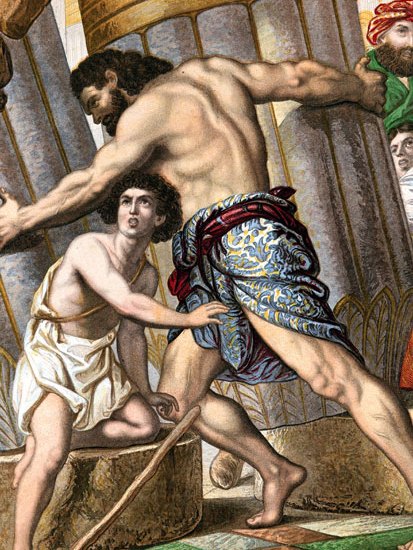
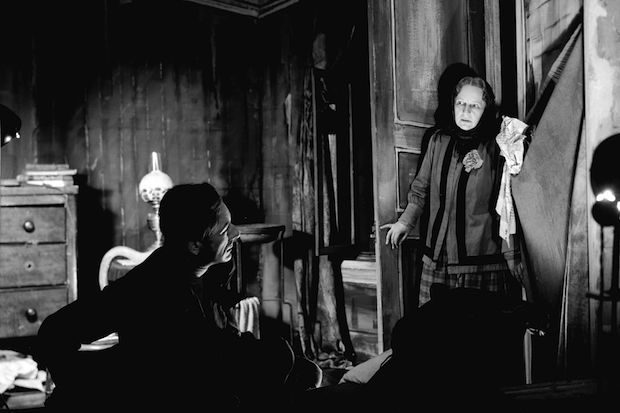

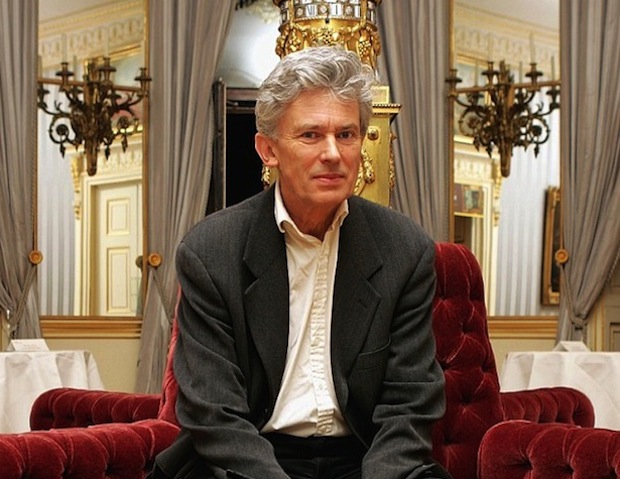

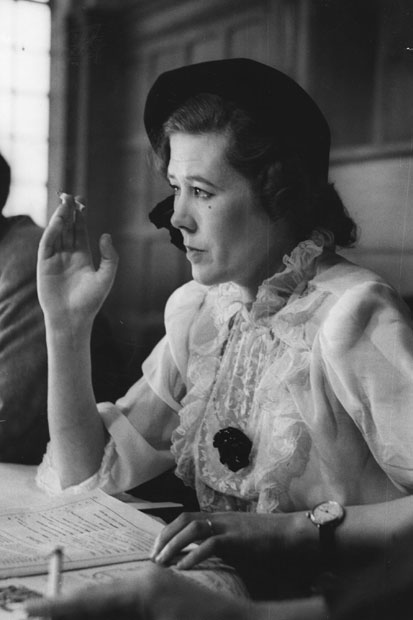
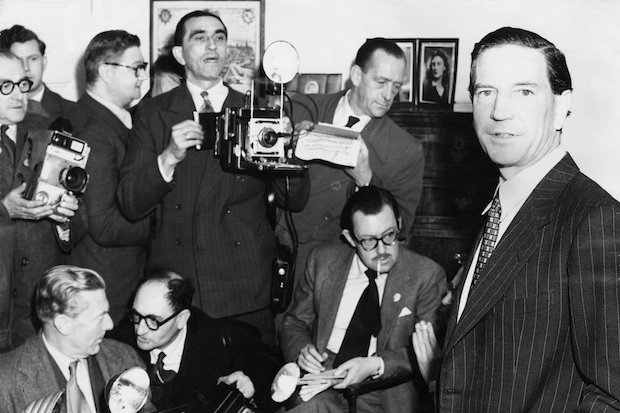






Comments
Don't miss out
Join the conversation with other Spectator Australia readers. Subscribe to leave a comment.
SUBSCRIBEAlready a subscriber? Log in